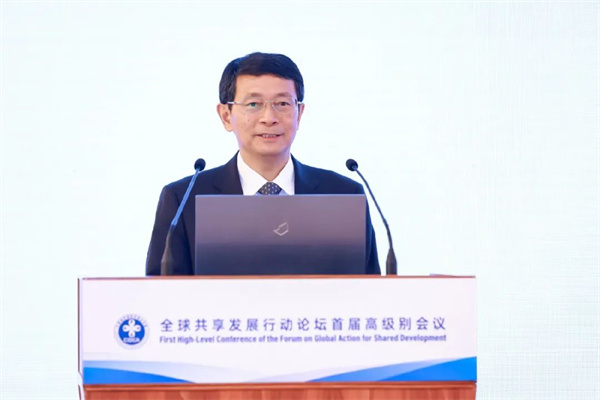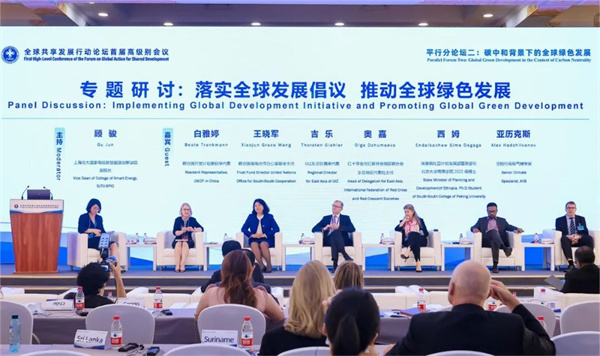Deng Boqing addresses parallel session on global green development
Deng Boqing, vice-chairman of the China International Development Cooperation Agency (CIDCA), attended and addressed the parallel forum themed on "Global Green Development in the Context of Carbon Neutrality" on July 10.

Jointly sponsored by Shanghai Jiao Tong University and the CIDCA, the parallel forum is an important event of the first high-level conference of the Forum on Global Action for Shared Development, held from July 9 to 10 in Beijing.
In his address, Deng noted that climate change is a grave challenge faced by the world. It is closely related to humankind's long-term survival and the realization of a better life and is critical to the harmonious coexistence between humanity and nature.
He said that China is an important participant, contributor and advocate in addressing global climate change and promoting global eco-civilization. At the general debate of the 75th session of the United Nations General Assembly in 2020, China solemnly pledged that it will strive to peak its carbon dioxide emissions by 2030 and achieve carbon neutrality by 2060, which has injected strong impetus into global efforts to implement the Paris Agreement on climate change, demonstrating the sense of responsibility and ideal pursuit of China as a responsible major country.
He pointed out that while promoting its socioeconomic development and achieving green transformation, China has continuously promoted international cooperation and exchanges in green development within the framework of South-South cooperation. The country has made historic contributions to advancing global climate governance, injecting new impetus into the UN 2030 Agenda for Sustainable Development and providing new models for global eco-civilization construction.
The vice-chairman said that all parties should work together to actively promote and implement the Global Development Initiative. He said it is necessary to adhere to a people-centered approach and make them direct practitioners of green development and the main beneficiaries of environmental protection. He stressed the importance of prioritizing green and low-carbon development in order to guarantee higher-quality, more efficient, equitable, sustainable and secure development. The modern environment governance system should be enhanced to effectively implement the concept of "lucid waters and lush mountains are invaluable assets".
It is essential to promote global sustainable development, adhere to the principle of common but differentiated responsibilities, actively strengthen international cooperation in addressing climate change and biodiversity protection, he said, underlying the significance of upholding green and low-carbon sustainable development to jointly safeguard our beautiful world.

Over 170 representatives from over 20 countries attended the parallel forum. Participants, including government ministers, heads of international organizations, ambassadors to China, as well as experts, scholars and industry representatives in the field of international cooperation, held in-depth exchanges of views on such topics as climate change, energy revolution, technological innovation and industrial development and transformation. The positive consensus reached at the session demonstrated the determination and confidence of countries around the world to join hands in addressing climate change and promoting industrial green transformation.

Follow us on WeChat
京ICP备18041594号-1
京公网安备 11010202005508号

Follow us on WeChat


